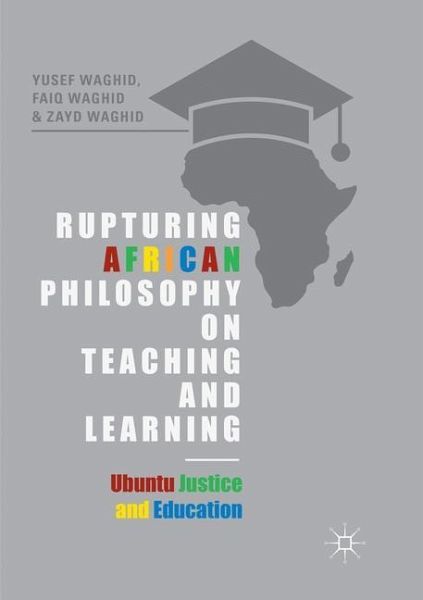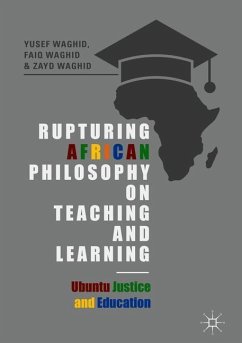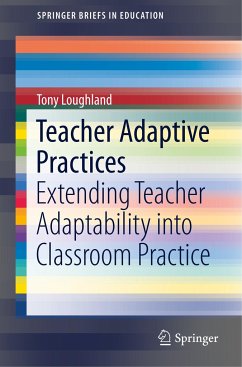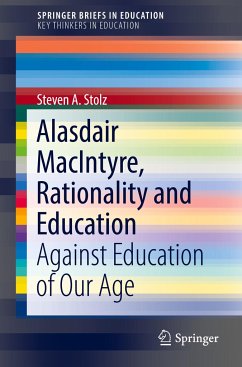
Rupturing African Philosophy on Teaching and Learning
Ubuntu Justice and Education
Versandkostenfrei!
Versandfertig in 6-10 Tagen
76,99 €
inkl. MwSt.
Weitere Ausgaben:

PAYBACK Punkte
38 °P sammeln!
This book examines African philosophy of education and the enactment of ubuntu justice through a massive open online course on Teaching for Change. The authors argue that such pedagogic encounters have the potential to stimulate just and democratic human relations: encounters that are critical, deliberate, reflective and compassionate could enable just and democratic human relations to flourish, thus inducing decolonisation and decoloniality. Exploring arguments for imaginative and tolerant pedagogic encounters that could help cultivate an African university where educators and students can en...
This book examines African philosophy of education and the enactment of ubuntu justice through a massive open online course on Teaching for Change. The authors argue that such pedagogic encounters have the potential to stimulate just and democratic human relations: encounters that are critical, deliberate, reflective and compassionate could enable just and democratic human relations to flourish, thus inducing decolonisation and decoloniality. Exploring arguments for imaginative and tolerant pedagogic encounters that could help cultivate an African university where educators and students can engender morally and politically responsible pedagogical actions, the authors offer pathways for thinking more imaginatively about higher education in a globalised African context. This work will be of value for researchers and students of philosophy of education, higher education and democratic citizenship education.












